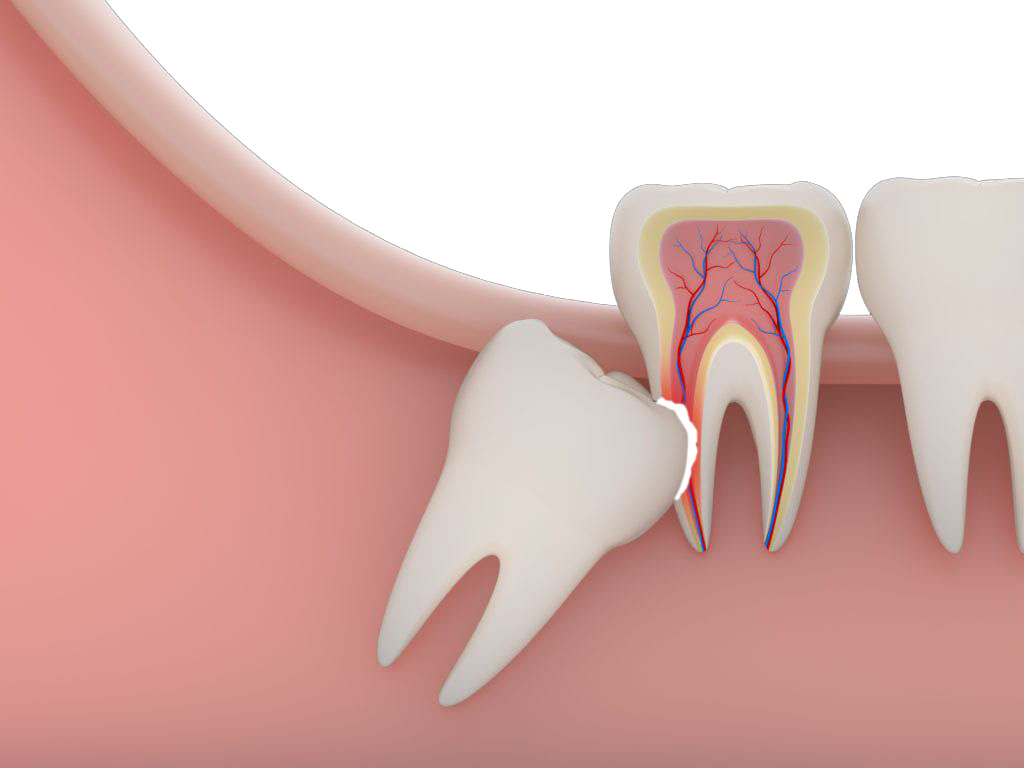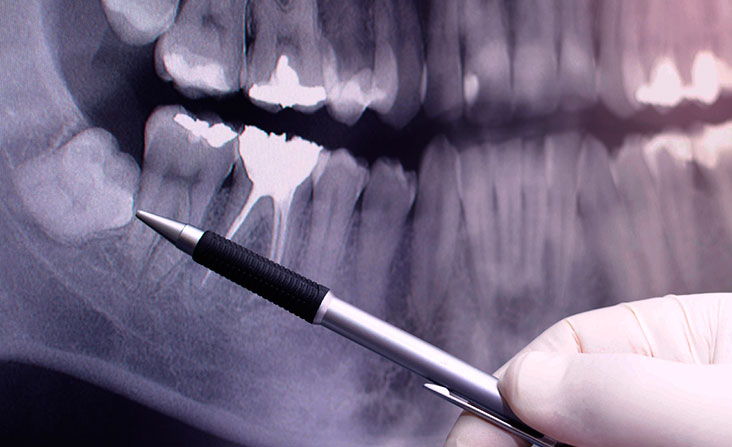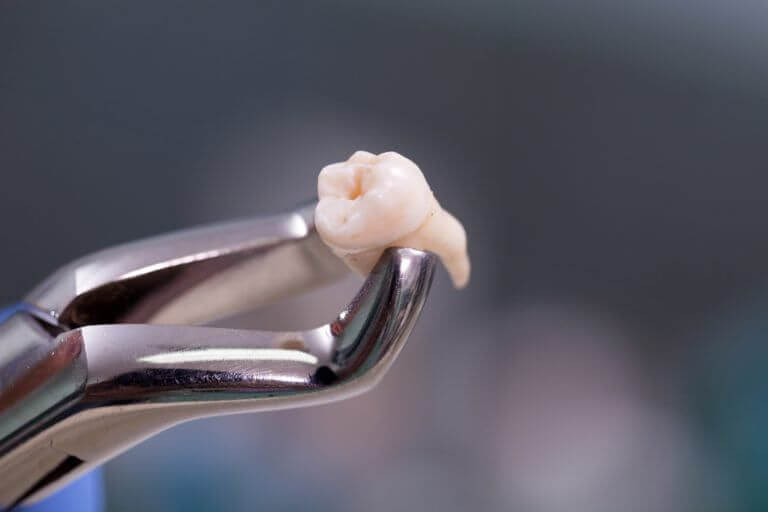Wisdom Teeth Extractions
Wisdom teeth, also known as "third molars" are often extracted (removed) because they cause pain, swelling and/or infection. The extraction of wisdom teeth can also be recommended because of the risk of future complications related to impaction, infection, or other pathologies such as cysts and tumors.Book Your Appointment
Wisdom Teeth Complications
Pericoronitis Inflammation of the surrounding gum tissue caused by infection.
Cyst formation
Cysts destroy bone and tissue in the jaw.
Decay
Wisdom teeth may experience decay more as they are harder to clean.
Overcrowding
Wisdom teeth can cause unwanted movement of other teeth.
Lockjaw
Or “Trismus” may occur in relation to wisdom teeth eruption or impaction.
Infection
Serious jaw infections can develop in association with wisdom teeth.
Bad smell or taste
Can be caused by infection, pus, or food trapped in/on or around the wisdom teeth.
Do Wisdom Teeth Need Removal?
It is highly recommended that you seek the advice of a qualified dental professional such as a dentist. They will advise you on the best treatment options you can take.
If you decide to keep your wisdom teeth, here are some things that may occur:
- Overcrowding
- Infection
- Cysts
- Decay

What Are The Symptoms Of Impacted or Infected Wisdom Teeth?
- Pain and or swelling in the back of your mouth, behind your molars.
- Redness, gum bleeding, and tenderness in the area where your wisdom teeth are.
- Bad taste or smell coming from bacteria accumulating around the wisdom teeth.
- Pain or discomfort in other teeth beside or close to the wisdom teeth.
Are there any risks from wisdom tooth removal?
Long-term complications are rare, some complications are:
- Dry socket – A painful condition also known as ‘Alveolar Osteitis’, which is inflammation of the socket bone. it occurs because the blood clot has not formed correctly.
- Localized infection – Take the prescribed antibiotics to help stop infection.
- Damage – Neighbouring teeth, sinuses, nerves, and nearby blood vessels may sustain damage. Some damage is temporary, while other damage is permanent.

How Are Wisdom Teeth Removed?
During this procedure, your dentist may do the following:
- Some form of sedation will be administered, either pills, IV, general or local anesthesia.
- An incision will be made in the gum tissue to expose the wisdom tooth and surrounding bone.
- Removal of some of the bone surrounding the wisdom tooth with an instrument may be required.
- Your dentist may need to cut the wisdom tooth into more easily manageable pieces. This is commonly known as “sectioning”.
- The tooth will be removed as a whole, or in pieces using instruments called “elevators” and “forceps”.
- The extraction site will be cleaned with instruments and saline solution.
- Stitches may be placed to help close the wound site.
- Gauze will be used to help with blood clot formation.
Are Wisdom Teeth Harder To Pull Than Other Teeth?
What Age Do You Get Wisdom Teeth?

Wisdom teeth removal aftercare
You should follow your dentist’s instructions, and take the prescribed medications:
- 1 hour after surgery – Maintain pressure on the gauze.
- After 1 hour – Wet the area and remove the gauze.
- 24 hours after surgery – Avoid spitting, rinsing, or sucking on a straw. This may damage the blood clot. If you have any blood in your mouth from the surgery, gently spit it out, or swallow it, if you are able. Avoid changing the gauze as you may damage the blood clot. Do not engage in strenuous activity and stay well-rested.
- After the first 24-48 hours – Gently rinse your mouth with saltwater. This will promote faster healing and help stave off infection.
- 48 hours after surgery – Avoid smoking.
For up to 1 or 2 weeks after surgery follow these tips to promote faster healing:
- Stick to softer foods in your diet.
- Wash your mouth with saltwater every 3 or 4 hours (or after every meal).
- Avoid brushing the extraction site directly.
- Stitches should be dissolved by now, or your dentist will need to remove them.
- Some swelling and bruising should be expected as this is normal.
When Should I Call My Dentist?
Some pain, discomfort, swelling, and bruising is normal and can be expected after wisdom tooth surgery. You should contact a dentist, surgeon, or emergency doctor if you have any of the following symptoms:
- Persistent numbness or pain in or around your mouth.
- Severe pain that is not controlled with prescribed pain killers.
- Swelling that worsens after 2 or 3 days after surgery.
- Difficulty swallowing or breathing.
- Persistent foul taste and/or smell.
- Pus from the socket.
- Nasal discharge.
- Excessive bleeding.
- Fever.
Frequently Asked Questions
No, not everyone will grow in wisdom teeth.
No, not everyone will grow in wisdom teeth. However, they generally grow in between the ages 18-25.
